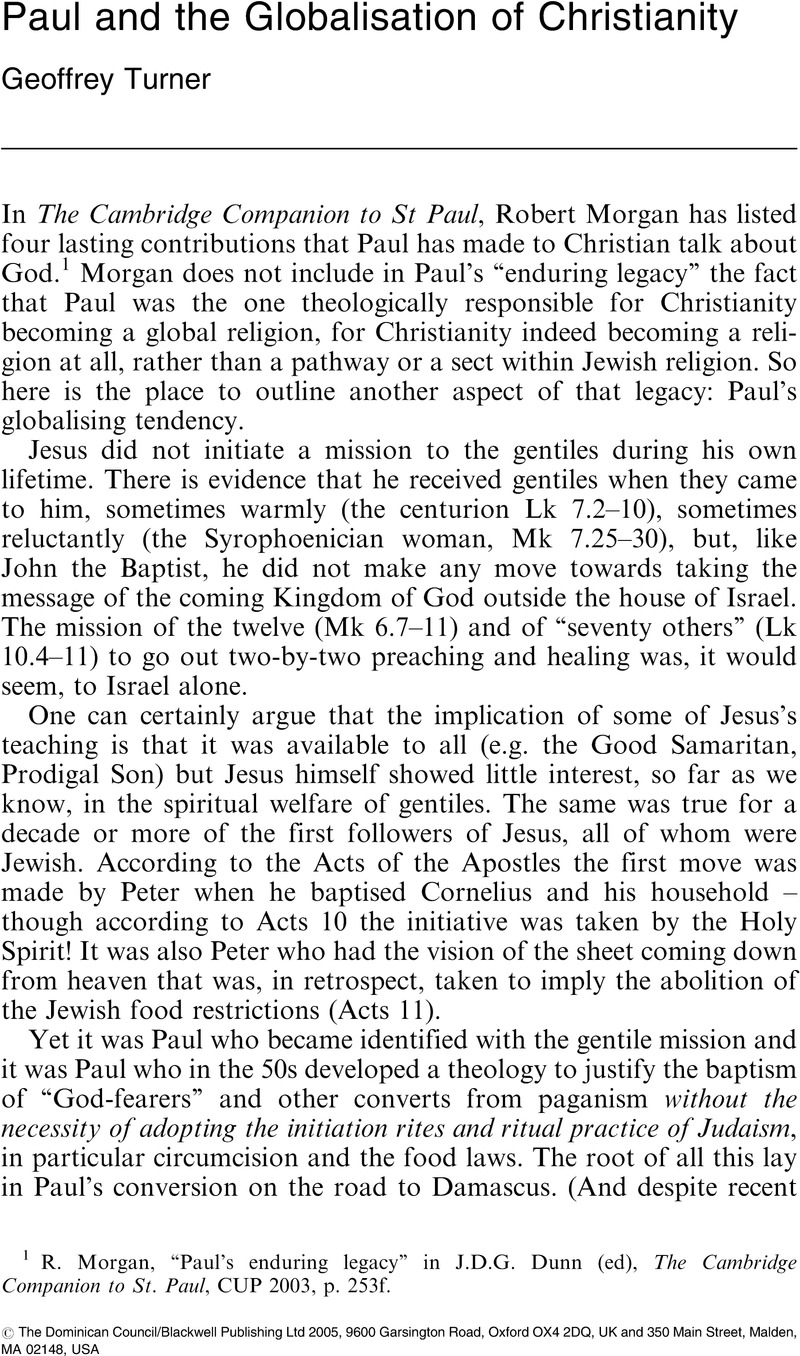No CrossRef data available.
Article contents
Paul and the Globalisation of Christianity
Published online by Cambridge University Press: 01 January 2024
Abstract
An abstract is not available for this content so a preview has been provided. Please use the Get access link above for information on how to access this content.

Information
- Type
- Catholic Theological Association 2004 Conference papers
- Information
- Copyright
- Copyright © The Dominican Council/Blackwell Publishing Ltd 2005
References
1 Morgan, R., “Paul's enduring legacy” in Dunn, J.D.G. (ed), The Cambridge Companion to St. Paul, CUP 2003, p. 253fGoogle Scholar.

